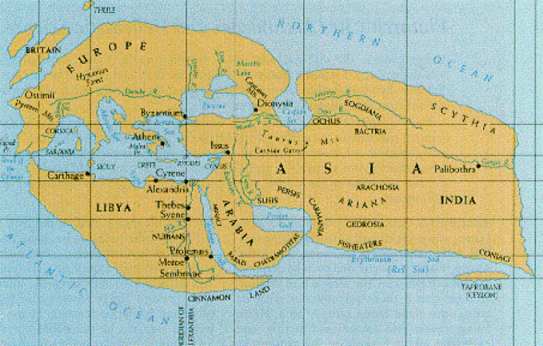
The Roman constitution was never designed with the conquest of wealthy overseas territories in mind.
With the addition of ever more provinces, especially that of Asia (Pergamene), the delicately balanced Roman political constitution began to collapse from within.
For individual politicians, especially for those with a talent for military command, the prize of power became ever more extraordinary as the empire expanded.
Meanwhile, on the streets of Rome the will of the Roman electorate was of ever greater consequence, as their favour granted a politician ever greater powers.
In turn the electorate was flagrantly bribed and cajoled by populists and demagogues who knew that, on achieving power, they could recoup any costs simply by exploiting their offices overseas.
Had in the earlier days of Cincinnatus high office been sought for status and fame within Roman society, then the latter days of the Roman republic saw commanders win vast fortunes in loot and governors make millions in perks and bribes in the provinces.
The key to such riches was the Roman electorate and the city of Rome.
Therefore who controlled the Roman mob and who held the pivotal positions of tribunes of the people was now of immense importance.
The fate of the ancient world was now decided in the miniature world of one city. Her town councillors and magistrates suddenly were of importance to Greek trade, Egyptian grain, or wars in Spain.
What had once been a political system developed to deal with a regional city state in central Italy now bore the weight of the world.
The very virtue of Roman unchanging stoicism now became Rome’s undoing. For without change a catastrophe was inevitable. Yet adaptable as the Roman mind was to matters of warfare, it was resistant to any sudden change in political rule.
So, as the Roman elite did, what it was bred to do, as they competed ruthlessly with one another for the highest positions and honours, they unwittingly tore apart the very structure they were sworn to protect.
More so, those who possessed extraordinary talents and succeeded only reaped the suspicion of their contemporaries who at once suspected their seeking the powers of tyranny. Had previously Rome handed extraordinary commands to great talents when a crisis required it, then towards the end of the republic the senate was loath to grant anyone commissions, no matter how urgent the situation became.
Soon it therefore became a contest between those of genius and those of mediocrity, of aspiration and vested interests, between men of action and men of intransigence.
The descent was gradual, unperceivable at times. Its final acts, however, proved truly spectacular.For a more detailed account, see the Danish background text in the Links Section.


_running.jpg)







I shamelessly copied this from here, http://www.roman-empire.net/republic/laterep-index.html. A page I also link to as the best brief online account of Roman history. By all means use it, this campaign is a bout history!!
ReplyDelete